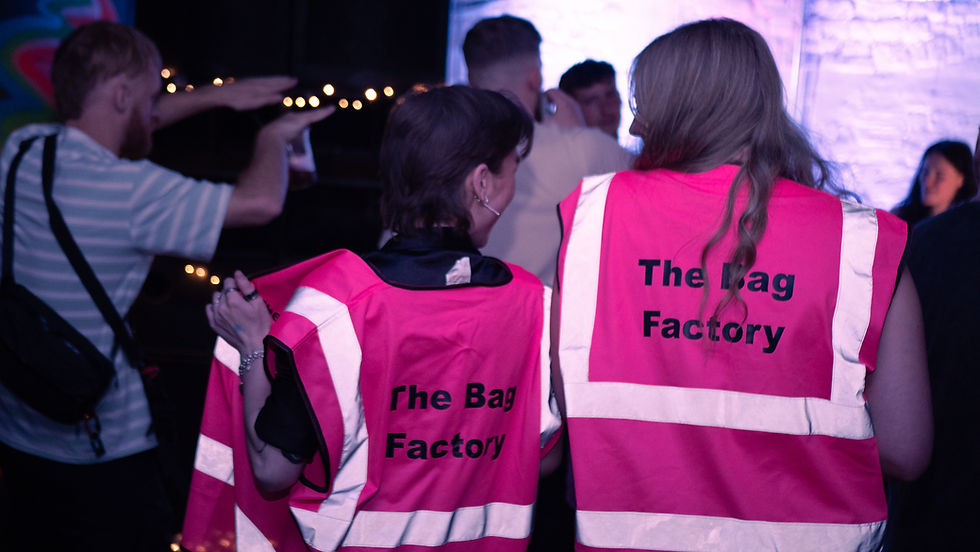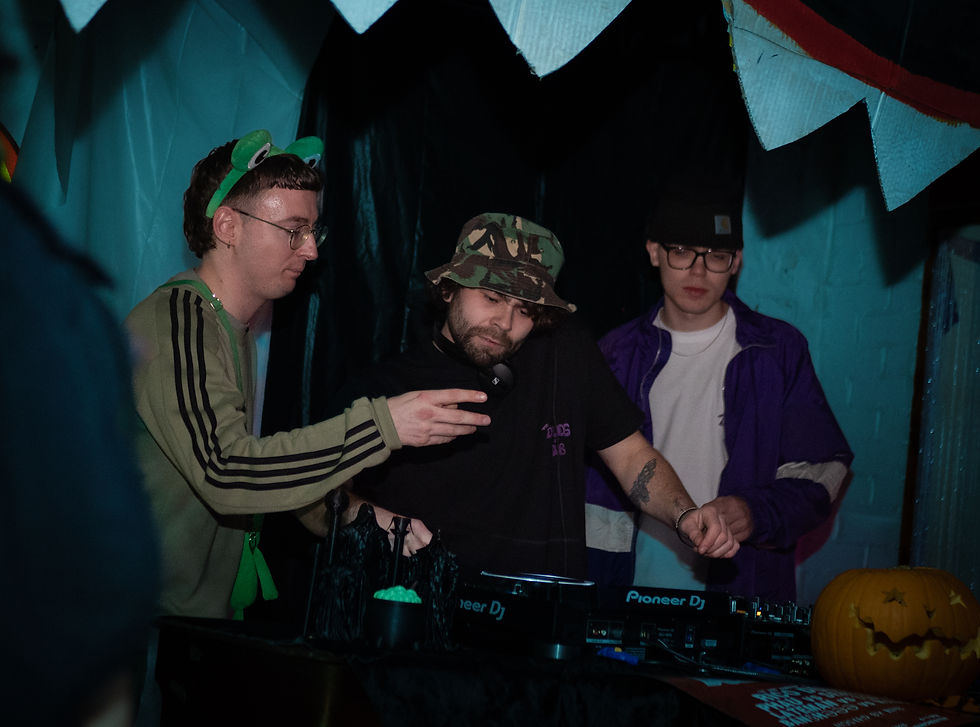Editorial 002: A Love Letter to Venues Past
- THE EDITOR

- Sep 8, 2025
- 4 min read

Manchester’s nightlife have been created from decades of reinvention, blood and brick, smoke and recovery, again and again. This is for the story‐keepers, the ones who danced in the underground before the crystal chandelier came up, who chased the beat through every recession, every council crackdown, every economic gut-punch from the 60s through the 90s.
Let’s drift backward, to the 60s where if you ever whispered “The Twisted Wheel” to someone who cared about soul, you’d get eyes full of fire. Jack, Phillip and Ivor Abadi opened a coffee‐bar‐turned little basement on Brazennose Street in ’63, where Roger Eagle spun unknown US soul, blues, R&B in a cellar dripping with condensation and sweaty dreams. Kids came back from all nighters with black gloves, doing backdrops, and Dave Godin visited and named the scene “Northern Soul” there. When the wheel stopped twisting in ’71 (dinged out by bylaws) it didn’t just close a club, it passed a torch. These were the roots of what would sprout through every incarnation of Manchesters nightlife later on.

The wheel's spiritual echo was etched into venues like Pips. It was buried under the Corn Exchange, a haven for goths, punks, Bowie lovers, and Joy Division’s first stumble through chords. Its DJ, Alan Maskell, swore it lit the fuse for everything after. That twilight mash of electronica and post-punk, hairspray and rebellion, it was the riot before the “Madchester” label.
And before the skies lit up with acid house, there was The Banshee in the late 80s, a Goth cathedral in a grubby basement on Oxford Street. Where Backcombed hair, PVC sheen, Sisters of Mercy echoing off walls, and a brief home for outsiders who weren’t here to be polite. It was where Mark XTC stoked his flames in his earlier years.

There was The Boardwalk, where Oasis and Happy Mondays cut their teeth, shared rehearsal rooms with James, and where Dave Haslam spun acid house into history. It wasn’t just bands though – DJs like Tintin made the place throb, bringing Balearic blends and beats that glued the crowd together. If stories were records, that place would still be scratching.
And you can’t talk about Manchester’s rave underground without tipping your head to The Thunderdome and The Hippodrome which were cavernous temples of sweat, bass, and strobes where nights blurred into legend. Jay Wearden was one of the driving forces behind them, as he welded breakbeats, early house, and techno into something rawer than polite clubs could ever handle. His influence still pops off today.

Of course, we can’t ignore The Haçienda—the dream made brick and pulse. Tony Wilson, Rob Gretton, New Order funding it, built in an old yacht-maker’s warehouse. FAC 51. Where the upstairs balcony watched acid house storm in, the Gay Traitor and Kim Philby bars named after spies whispered secrets. A place built on belief, not budget.
And from my own youth there was Antwerp Mansion, where I probably had my first proper rave. I saw careers begin there, and legends of the underground like Hit & Run and LEVELZ, absolute cornerstone of today's Manchester scene which is still pushing through with Rich Reason. Lest us not forget Sound Control, the everyday outpost for indie lovers and dnb heads (on alternating nights). Most heartbreakingly, there was the recent closure of the Old Abbey Taphouse, a true grassroots haunt snuffed out by rent hikes and indifference.

Manchester has always been battling debt, closures, politics. The 60s saw factory shutdowns; the 70s furloughs and unrest; the 80s Thatcherism; the 90s financial shifts. Through it all, every recession ripped at the nightlife’s lifeblood, but Mancunians alike said a Big Fuck You to that, and music stitched it back tighter, louder. It was how Mancs stayed human.
We’re on that edge again. Venues closing. Gentrification showing steel-toed sneers where heritage once stood. Manchester is like a Snake shedding its skin—but underneath, the rot is real unless something changes.

That’s why at The Bag Factory, we try something else. We aren’t a big room. We’re not polished. We are grit, decks, community. We run a space for whoever plays, whoever listens, whoever needs to belong. No ego, no corporate burping. We want intimacy, fierce sounds, real talk. We also hope that our documentary—MADE IN MANCHESTER—will not be seen as just a film, but proof that dream and blood still matter when everything else gets commodified.
Venues die. That’s the heartbreak. But stories survive in our bones and in our tunes. And if we can keep carving spaces to build new ones—well, that’s how the love letter keeps being written, line by messy, beautiful line.
So, we hope to see you on our dance floor soon, and let's become a legacy.
Your Editor x
Sources & Further Reading
Wikipedia & heritage details on The Twisted Wheel – birthplace of Northern Soul (thamesvalleysoulclub.com, Size? Blog)
Guardian retrospective on Twisted Wheel origins and legacy (The Guardian)
Feature on Pips nightclub’s foundational role in alternative Manchester music (I Love Manchester)
Histories of The Banshee and Goth scene in Manchester (Visit Manchester, Pubs of Manchester)
Boardwalk and its role in the C86/indie scene, Oasis beginnings (Wikipedia)
Electric Circus punk venue history (Wikipedia)
The Haçienda’s creation and cultural architecture (Wikipedia)




Comments